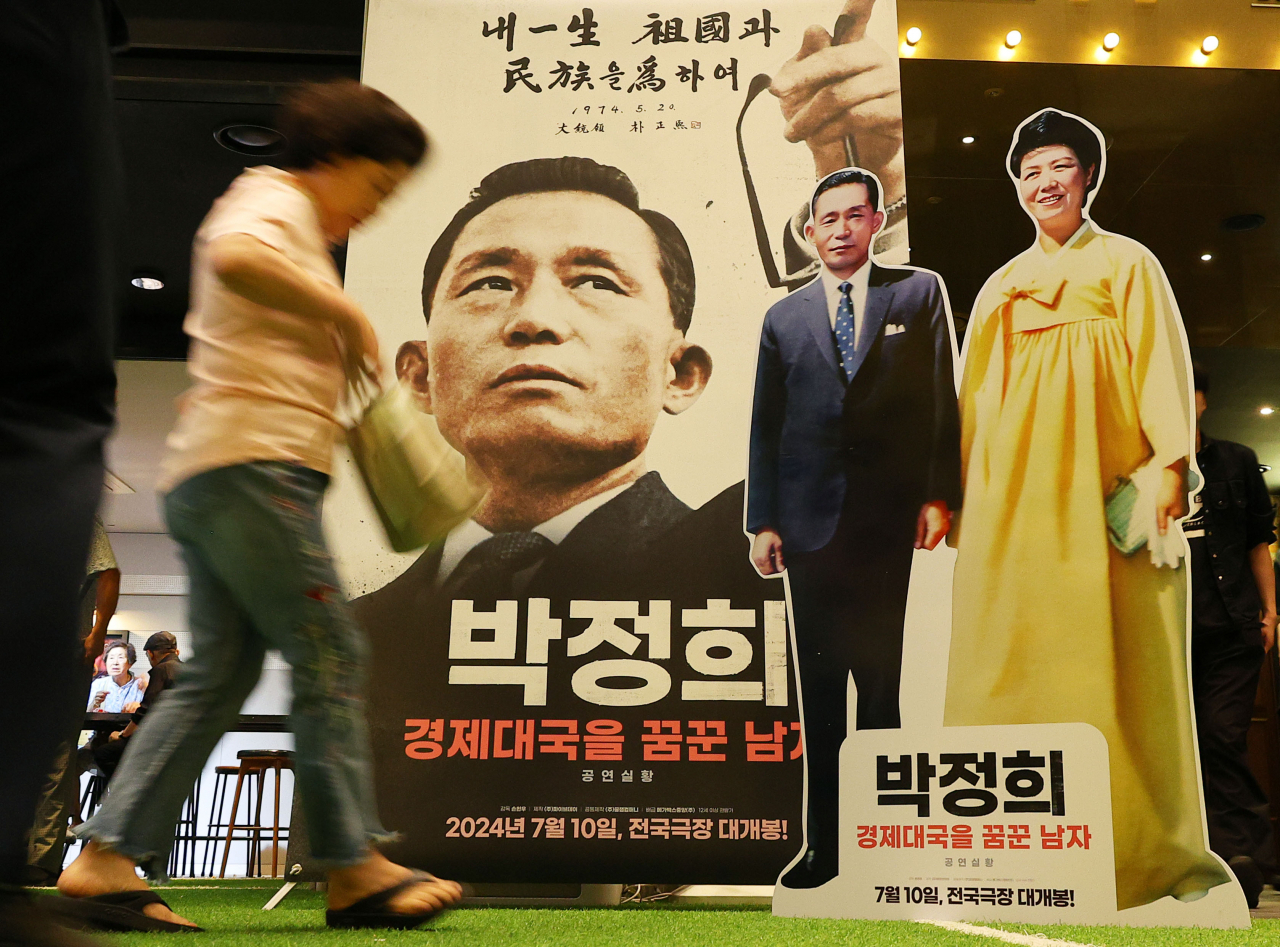Daegu stokes controversy over idolization of strongman Park
City's decision to erect statue of former president sparks opposition from political rivals, civic groups
By Yoon Min-sikPublished : June 30, 2024 - 12:45

Last week, Daegu Mayor Hong Joon-pyo alluded to details about plans to honor controversial former President Park Chung-hee in the city, saying the metropolitan government will build a 3-meter statue in the Dongdaegu Station Plaza and another 6-meter one at the Representative Library of Daegu.
"I personally believe it should be smaller than statue of Adm. Yi Sun-sin in Seoul Gwanghwamun Plaza," the conservative mayor said in a press conference, referring to the 6.5-meter statue of the legendary military leader who helped defend Korea from Japan in the late 16th century.
Both Yi and Park were military leaders who are celebrated by many to this day, but Yi's legacy as one of the most revered figures in the nation's history differs from that of Park. Having risen to power through a military coup in 1961, Park reigned over South Korea with an iron fist for nearly two decades, oppressing political rivals and pro-democracy activists with disregard for basic human rights.
His legacy remains a mixed bag, with opponents accusing him of a bloody crackdown on pro-democracy movements and authoritarian rule over the country. But his supporters -- particularly among the conservative bloc -- credit him for the country's rapid economic development throughout the 1960s and 1970s.
A coalition of 57 civic groups based in Daegu on Thursday submitted a petition calling for the city council to abolish the ordinance for the Park statues, which was passed last month to provide legal grounds to spend 1.45 billion won ($1.05 million) to build the two statues this year. In a press conference in front of the city council, they criticized Park's dictatorial rule and his disregard for human rights during his time in office.
The groups were to start collecting signatures locally to support their petition, as the law requires the support of at least 1 in 150 of the voters in the city -- which in Daegu's case would be nearly 14,000 signatures.
But getting the signatures against the Park statues could be a tall order in Daegu, which is among the most prominent political strongholds for the conservative bloc in the country. The city council itself comprises 31 members of the conservative ruling People Power Party, with a single member from the main opposition Democratic Party of Korea.
The Daegu branch of the Democratic Party released a statement last week raising concern against idolization of the political figures, in which it pinpointed the efforts to erect the statues of Park.
Park is among the most highly divisive figures in South Korean history, with his multifaceted legacy sparking arguments over whether he should be remembered as a hero or villain. A 2019 survey by local pollster Gongjung of 1,006 adults showed that 46.1 percent of the respondents regarded him as a political dictator, with an identical 46.1 percent labeling him as a hero who led the country's economic growth.
His support base is still substantial, as many polls show he is one of the most popular -- if not the most popular -- presidents of all time here. A poll by Gallup Korea of 1,777 South Koreans released earlier this month showed that 24 percent of respondents picked Park as their favorite Korean president, falling second only to Roh Moo-hyun's 31 percent.




















